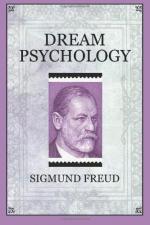The unconscious wish-feelings evidently strive to assert themselves during the day also, and the fact of transference and the psychoses teach us that they endeavor to penetrate to consciousness and dominate motility by the road leading through the system of the foreconscious. It is, therefore, the censor lying between the Unc. and the Forec., the assumption of which is forced upon us by the dream, that we have to recognize and honor as the guardian of our psychic health. But is it not carelessness on the part of this guardian to diminish its vigilance during the night and to allow the suppressed emotions of the Unc. to come to expression, thus again making possible the hallucinatory regression? I think not, for when the critical guardian goes to rest—and we have proof that his slumber is not profound—he takes care to close the gate to motility. No matter what feelings from the otherwise inhibited Unc. may roam about on the scene, they need not be interfered with; they remain harmless because they are unable to put in motion the motor apparatus which alone can exert a modifying influence upon the outer world. Sleep guarantees the security of the fortress which is under guard. Conditions are less harmless when a displacement of forces is produced, not through a nocturnal diminution in the operation of the critical censor, but through pathological enfeeblement of the latter or through pathological reinforcement of the unconscious excitations, and this while the foreconscious is charged with energy and the avenues to motility are open. The guardian is then overpowered, the unconscious excitations subdue the Forec.; through it they dominate our speech and actions, or they enforce the hallucinatory regression, thus governing an apparatus not designed for them by virtue of the attraction exerted by the perceptions on the distribution of our psychic energy. We call this condition a psychosis.
We are now in the best position to complete our psychological construction, which has been interrupted by the introduction of the two systems, Unc. and Forec. We have still, however, ample reason for giving further consideration to the wish as the sole psychic motive power in the dream. We have explained that the reason why the dream is in every case a wish realization is because it is a product of the Unc., which knows no other aim in its activity but the fulfillment of wishes, and which has no other forces at its disposal but wish-feelings. If we avail ourselves for a moment longer of the right to elaborate from the dream interpretation such far-reaching psychological speculations, we are in duty bound to demonstrate that we are thereby bringing the dream into a relationship which may also comprise other psychic structures. If there exists a system of the Unc.—or something sufficiently analogous to it for the purpose of our discussion—the dream cannot be its sole manifestation; every dream may be a wish-fulfillment, but there must be other




